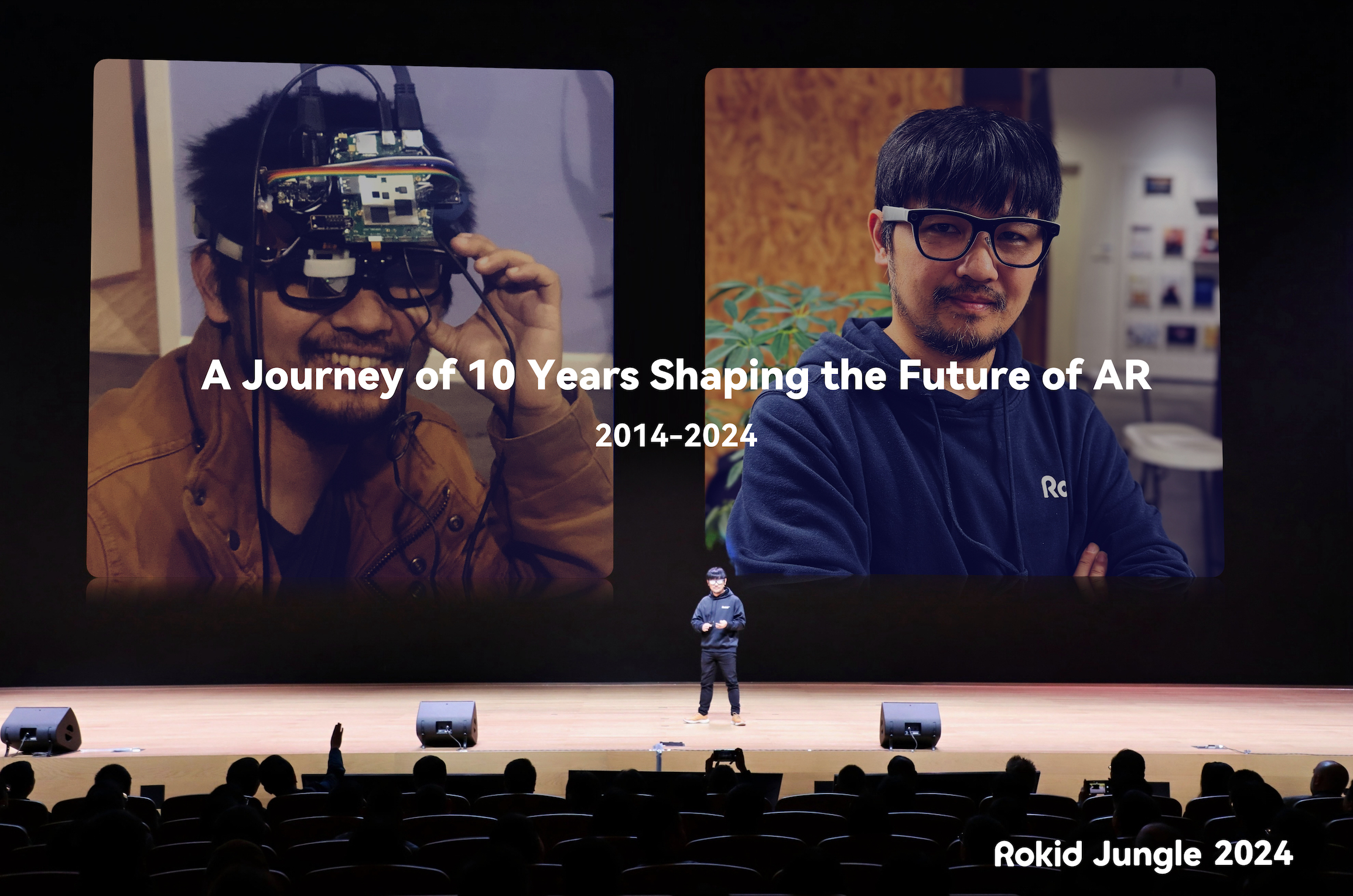 China's Rokid Debuts First AI-Enhanced Smart Glasses
China's Rokid Debuts First AI-Enhanced Smart Glasses(Yicai) Nov. 20 -- Rokid, a Chinese producer of mixed reality glasses, has debuted its first augmented reality glasses equipped with a large language model to expand the application of wearable devices via artificial intelligence and tap into a broader consumer market.
The new Rokid Glasses are developed in collaboration with eyewear brand Bolon and integrate Alibaba Group Holding's LLM Tongyi Qianwen, enabling object recognition, text translation, math problem-solving, and search functions, the Hangzhou-based glasses maker announced on Nov. 18.
The device is priced at CNY2,499 (USD345) and will launch in the second quarter of next year, Rokid noted. It features an integrated design weighing just 49 grams and a 12-megapixel camera, and is powered by the Snapdragon AR1 platform, it pointed out.
"The rapid development of generative AI will expand the use cases of Rokid's smart glasses," Misa Zhu, founder and chief executive of Rokid, told Yicai. This was a key factor in accelerating the product launch, he noted.
During a demonstration of the glasses' practical use, Zhu shared how the chairman of a blind people's association used the new device to locate cherry tomatoes on a table despite severe visual impairments. Rokid has also partnered with Chinese internet giant NetEase to develop English learning apps, using AI to create immersive language practice scenarios.
Rokid was set up 10 years ago by Zhu, who came up with the company's vision of how AI and AR would transform humanity and eventually converge after a four-hour discussion with the then-executive chairman of the e-commerce giant Jack Ma.
Global Strategy
Rokid is pursuing different domestic and global market strategies based on perceptions of diverse consumer preferences. It focuses on prescription eyewear through optical retail channels in China, while internationally, it mainly sells its products online, ranking among bestsellers on Amazon Europe.
During the launch event of the new Rokid Glasses, the firm also announced tie-ups with DingTalk, iQiyi, Garmin, and others and noted that for global service integration, it is open to all LLMs such as ChatGpt. The company uses Amap for navigation in China and Google Maps overseas.
Rokid's overseas revenue more than doubles each year and may surpass domestic sales next year, according to Zhu. The firm holds 99 percent of China's cultural tourism AR market, typically taking a 30 percent revenue share in such partnerships, Zhu noted, adding that it will bring this business model abroad.
In addition, Rokid plans to expand its developer ecosystem and deepen the integration of AI and AR technologies, Zhu pointed out. "Global expansion has been our vision from day one and remains our primary goal for next year."
Editor: Martin Kadiev